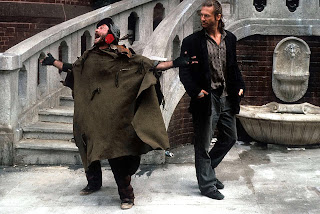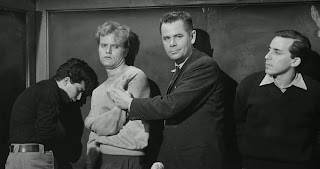By Michael Lyons
On September 30, 1971, The New York Times reported: "Disney World opens tomorrow, and the atmosphere among Florida business interests is as thick with tension as a Cape Kennedy countdown."
The Walt Disney World Resort would open on the next day, October 1, 1971, and was rightfully a big deal. When Walt opened Disneyland in California in 1955, he and his company changed entertainment and vacations forever. Now, in 1971, just five years after Mr. Disney's passing, a second, new Disney theme park was about to debut in Florida, satisfying a need for another half of a country, during a time when air travel wasn't the seemingly commuter-like regularity of our lives that it is today.
And with this big deal came the need to promote the new Resort on television, a medium that Walt Disney had used brilliantly in the 1950s, to let everyone know about Disneyland. The same would be done for this new Disney realm.
On October 29, 1971, NBC aired the 90-minute special, The Grand Opening of Walt Disney World, which featured an array of stars, introducing audiences to "The Vacation Kingdom of the World." Watching it today, it is a fascinating historical document of Walt Disney World in its nascent days and the excitement around the opening of the Resort that's become a vacation tradition and ritual for so many.
As Walt Disney World celebrates its 50th anniversary this week, it's the ideal time to look back on the Grand Opening TV special and how it is now a time capsule of the Resort's innocent, early days.
The show opens with 70s icon Glen Campbell strolling through untouched Disney property, strumming his guitar, and singing the song "Today is Mine," when he happens upon the Walt Disney World monorail soaring by, high above him.
And, in the monorail? None other than Julie Andrews (the beloved star, connected forever to Disney, thanks to her star-making turn as Mary Poppins). She welcomes all of us at home to the special, as stunning ariel shots of the Resort are shown.
Ms. Andrews opens the special in a well, "practically perfect" way, performing a lovely medley of Disney anthems, "When You Wish Upon a Star," and "Zip-A-Dee-Doo-Dah," as she makes her way through The Magic Kingdom (while the park is open and very fortunate guests get to watch!). Additionally, backup dancers in some oh-so-70s costumes and colors join in.
Comedian Buddy Hackett, who appeared in Disney's The Love Bug, joins "Herbie" the Volkswagon at the Speedway attraction for some shtick.
Throughout the special, there are also glimpses of such attractions as The Country Bear Jamboree, and It's a Small World, no doubt whetting the appetite of eager kids watching at home, who would soon be begging their parents to change their next vacation plans to Florida.
In a taste of "what once was," the show also provides a look at, now defunct, Walt Disney World attractions, such as The Skyway and The Mickey Mouse Review.
In a glimpse into another time, we see the original parade along Main Street, USA, and how much the characters who appear in the park have changed (you've gotta love those groovy, "Day-Glo" Aristocats).
The Grand Opening special culminates in an emotional moment as a tremendous chorus, and marching band, surround Cinderella Castle performing "When You Wish Upon a Star," as balloons are released and flood the sky.
In the fifty years since Walt Disney World opened and this special aired, the Resort, like the world itself, has grown and changed immensely. It's been featured innumerable times after on television, from the opening of its other three theme parks, Epcot, Disney’s Hollywood Studios, and Disney’s Animal Kingdom to the backdrop for many shows, including Full House and Black-ish.
With countless pop-culture and personal memories connected to Walt Disney World, one can't help reflecting on the words of Bob Hope in The Grand Opening of Walt Disney World Special:
"The entire world owes Walt Disney a great debt. He achieved much, but perhaps his greatest accomplishment is that he made children of us all."















